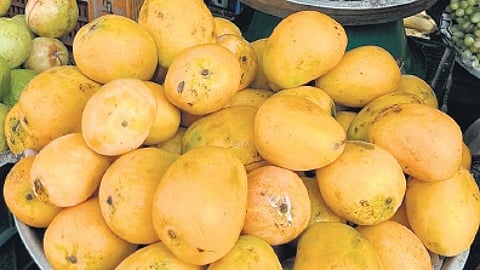

BENGALURU: Acting on a directive from the Food Safety and Standards Authority of India (FSSAI), New Delhi, Karnataka’s Food Safety and Drug Administration (FDA) department has launched a state-wide drive against the use of banned fruit-ripening agents, artificial colouring and coating of fruits using synthetic dyes and other non-permitted substances, which pose serious health risks.
This comes after FSSAI instructed all states and Union Territories to step up enforcement and conduct special drives to ensure that fruits sold are safe for consumption.
According to an official from the FDA, mangoes, bananas, litchi and papayas, the most popular summer fruits, are exposed to such non-permitted substances.
These fruits are often exposed to calcium carbide, a banned substance under the Food Safety and Standards Regulations, which is used to speed up the ripening process. “When the chemical reacts with moisture, it releases acetylene gas, a compound that mimics the effects of natural ripening hormone ethylene, but can be toxic to humans,” the official added.
Vendors often take such shortcuts to meet the demand and improve the appearance of fruits, making them look evenly ripe and market-ready within hours. However, this does not enhance the nutritional quality or shelf-life of the fruit. In fact, artificially ripened fruits spoil faster and often have a poor taste and inconsistent texture, the FDA official said.
Apart from calcium carbide, traders use synthetic colours to give fruits a vibrant look. However, these synthetically coated fruits can cause serious side effects, ranging from headaches and nausea to long-term damage to internal organs if consumed regularly.